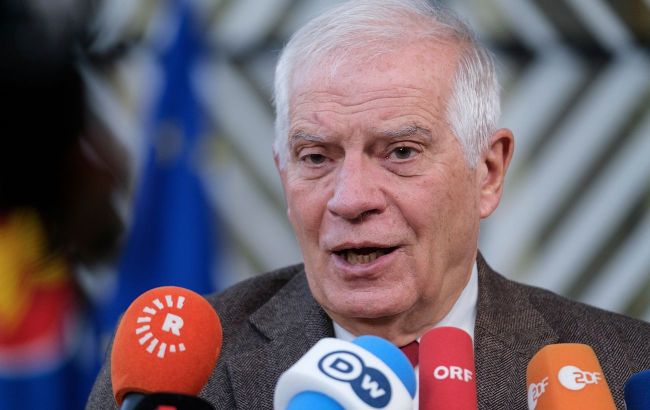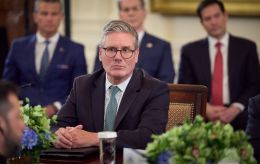Borrell accuses Hungary of blocking €5 billion in EU military aid to Ukraine
 EU High Representative Josep Borrell (getty images)
EU High Representative Josep Borrell (getty images)
Hungary does not agree with the texts of the EU legal acts necessary to provide Ukraine with military aid amounting to about €5 billion. As a result, the aid is blocked because these legal acts must be approved unanimously by all EU members, explained EU High Representative Josep Borrell.
During a press conference following the EU Foreign Affairs Council, Borrell noted that, according to an agreement insisted upon by Budapest, no Hungarian contributions to the European Peace Facility are spent on any military, even non-lethal, aid to Ukraine. Meanwhile, to use the fund's resources, decisions must be made by consensus.
Specifically, according to Borrell, seven legal acts must be adopted to provide aid to Ukraine. However, Hungary disagrees with the texts of the documents, so they are still under consideration, the diplomat noted, adding that he did not want to speculate on the reasons for Budapest's actions.
"These are seven legal texts that will allow us to mobilize resources to provide military support to Ukraine. Everyone says that we are not fulfilling our commitments, not doing this on time. I have seven legal documents awaiting approval to mobilize about €5 billion in military support for Ukraine. This delay can be measured in human lives. This is not a financial problem, it is a problem of human lives," Borrell said.
He added that any EU member can have legitimate reasons for disagreeing with something, but there must be an understanding of the gravity of the issues that currently cannot be resolved due to such disagreement.
"Now we will have another, additional legal act that we need to use the proceeds from frozen (Russian) assets and turn them into weapons. It will be presented to Coreper (the Committee of Permanent Representatives in the EU) this week. I do not want to speculate on how this will proceed, but the position of all member states is important. I asked them – please, do not block it. Because instead we will have proceeds from these assets, which we will carefully keep in current accounts," Borrell said.
He emphasized the unacceptability of EU military aid to Ukraine being "held hostage by another decision that has no connection to this specific issue, especially given the urgency of the situation."
On May 25, the Financial Times, citing sources, reported that Hungary had blocked the EU's approval of directing profits from frozen Russian assets to purchase weapons for Ukraine.
Use of Russian assets for Ukraine
The EU did not agree to confiscate €300 billion in frozen Russian assets due to an alleged lack of legal basis for such a decision. Instead, it was decided to use the interest from these assets, estimated at around $5 billion per year, to purchase weapons for Ukraine.
The final decision on how exactly this will be done will be made by G7 leaders at a meeting in June in Italy.
US Treasury Secretary Janet Yellen stated that the most promising idea is for G7 countries to provide a loan to Ukraine, which will be secured by the profits and interest generated from frozen Russian assets in Europe.

